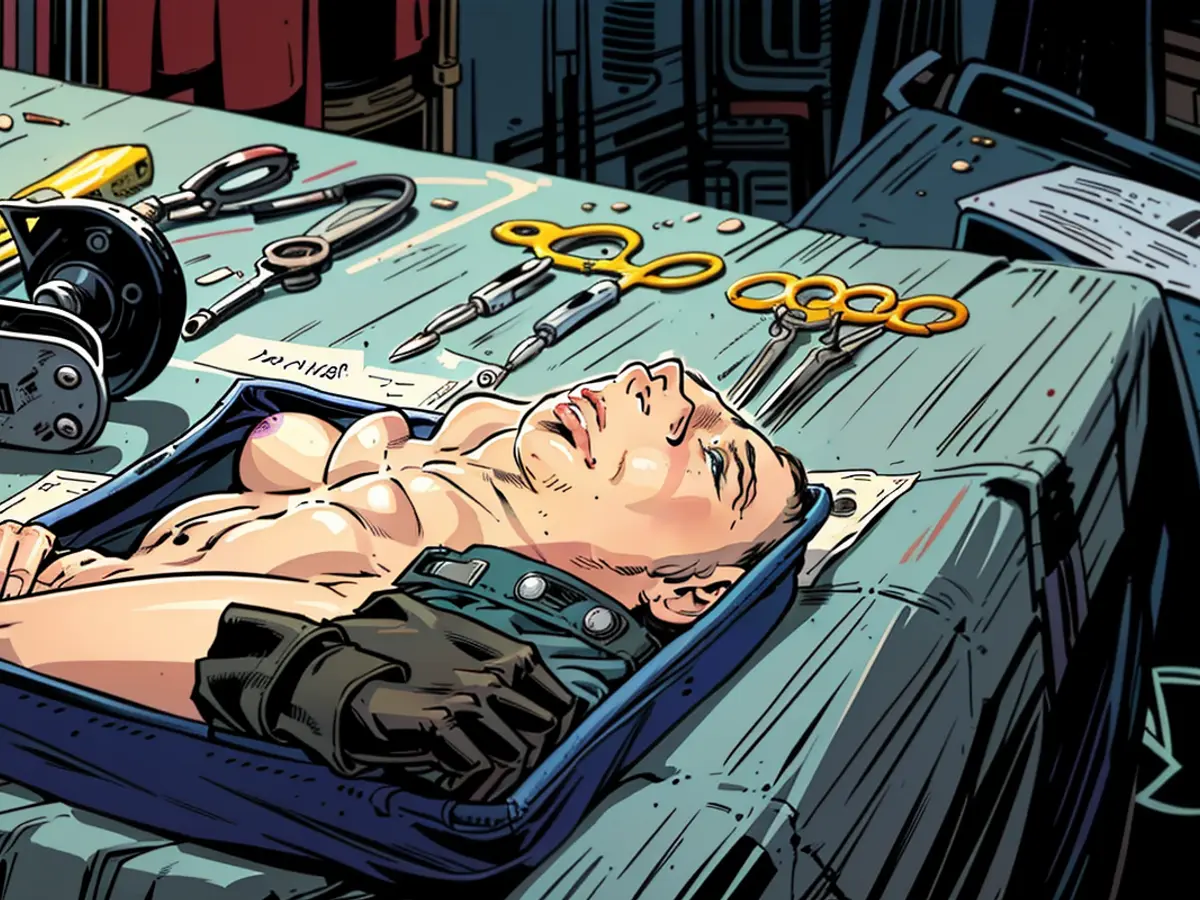- Data shows a distressing figure of 75 fatalities attributed to medical mistakes.
Instead of the scheduled operation due to a cyst, a 39-year-old woman experienced unintended sterilization - the explanation: a mix-up. Confusing patients or medical cases, administering incorrect medication, or leaving medical tools inside the body after surgeries - these severe blunders made by doctors are known as "Never Events" within the medical field. These are errors that, according to professionals, should never occur and can be prevented.
Approximately 150 such major incidents were documented by experts last year. The Medical Service announced this when presenting its 2023 annual statistics in Berlin. It serves as an evaluator for mandatory health and long-term care insurance providers. In total, 75 patients lost their lives as a result of these mistakes. In the previous year, experts attributed 84 deaths to such errors.
"In order to prevent such events, we need a mandatory reporting system," urged Stefan Gronemeyer, CEO of the Medical Service Bund. As such a system is not currently in place within hospitals, the statistics only reflect cases initiated by patients.
Damage resulting from errors was proven in approximately 20% of assessments.
The procedure works as follows: If a patient suspects an error occurred during their treatment, they can contact their mandatory health insurance provider. The insurance company may then involve the Medical Service to investigate the case. Only then is the case included in the statistics. This happened 12,500 times in 2023, around 600 fewer than the previous year.
In most instances (71.1%), the experts found no wrongdoing by medical personnel. In approximately one in five cases (21.5%), i.e., 2,679 treatments, patients suffered harm as a result of a doctor's error. This means the absolute number of cases remained largely unchanged - there were only 17 more cases the previous year. In all remaining assessments, either no harm was sustained or a clear causal connection between harm and wrongdoing could not be established.
The rate of proven errors is less than 0.1% of all treatments in Germany. For comparison, according to the National Association of Mandatory Health Insurance Physicians, there are over 500 million treatment cases in practices annually. However, these errors can still have serious consequences for patients.
What level of damage is involved?
In the majority of cases (65.5%), the damage to patients was temporary, but it rendered nearly a third (29.7%) of affected individuals permanently impaired. In the category of permanent damage, the Medical Service classified 180 cases as severe last year. This means that patients now require ongoing care, have lost their sight, or are paralyzed.
The actual number of treatment errors is likely much higher. Experts estimate that preventable harm occurs in approximately 1% of all inpatient treatments. "Experts also assume that there are about 17,000 preventable error-related deaths in our hospitals each year," explained CEO Gronemeyer, referring to a study commissioned by the Action Alliance Patient Safety.
In order to learn from these mistakes and prevent them from happening again, the Medical Service advocates for a mandatory, penalty-free, and pseudonymized reporting system for such cases.
Advocacy for a hardship fund and mandatory reporting
"When such errors occur, risks in the care process must be systematically addressed," demanded Gronemeyer. He criticized that the hospital reform proposed by the federal government does not include procedures for preventing errors, which are common abroad.
The German Foundation for Patient Protection also fiercely criticized the handling of errors in the medical field. "Patients here are left in the lurch. There is no error culture in practices and nursing homes," said the foundation's board member, Eugen Brysch.
In response to a dpa inquiry, the Federal Ministry of Health (BMG) stated that clinics and practices are already legally obligated to implement error reporting systems. "Both in the mandatory health insurance sector and in hospitals, evaluations show a high level of implementation of error management and error reporting systems," the ministry said.
To compensate those affected, a hardship fund, as promised in the coalition agreement, is required. "It cannot be that the injured must wait several years to exercise their rights," Brysch criticized and demanded a draft law from the health minister. The BMG stated that it is examining whether to commission a concept for the design of a hardship fund.
In light of the high number of "Never Events" and their serious consequences, advocates like Stefan Gronemeyer, CEO of the Medical Service Bund, are pushing for a mandatory reporting system to prevent such errors. health and safety are paramount in this discussion, as these errors can result in temporary or permanent harm, with severe cases leading to ongoing care, loss of sight, or paralysis.








